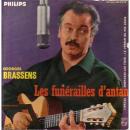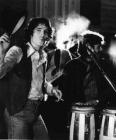Difendi l'allegria

La poesia di Mario Benedetti è stata interpretata anche nell'originale spagnolo (con alcuni adattamenti nel testo qui riportati) da Joan Manuel Serrat nel disco El Sur también existe interamente dedicato a poesie del poeta uruguaiano.
DEFENSA DE LA ALEGRÍA
(continua)
(continua)
inviata da CCG Staff 22/2/2016 - 22:57
Sigonella

Libia, ok di Roma: Droni Usa partiranno da base italiana
Il governo italiano il mese scorso ha dato il via libera alla partenza di droni americani armati dalla base di Sigonella per operazioni militari contro l'Is in Libia e in Africa del Nord. Lo riporta il Wall Street Journal, parlando di "svolta" dopo oltre un anno di negoziazioni. La notizia viene poi confermata da fonti del governo italiano.
Repubblica.it
Il governo italiano il mese scorso ha dato il via libera alla partenza di droni americani armati dalla base di Sigonella per operazioni militari contro l'Is in Libia e in Africa del Nord. Lo riporta il Wall Street Journal, parlando di "svolta" dopo oltre un anno di negoziazioni. La notizia viene poi confermata da fonti del governo italiano.
Repubblica.it
22/2/2016 - 21:31
Fragile

La canzone è stata inserita nel film-documentario The Panama Deception, riguardante l'invasione statunitense di Panama e premiato con l'Oscar al miglior documentario nel 1993.
Antonio 22/2/2016 - 19:28
L'infanzia di Maria
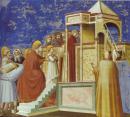
Dal blog Fabrizio De André in English
"L'infanzia di Maria" tells of the young childhood of Maria as recounted in the most famous of the apocrypha, the Gospel of James. - Dennis Criteser
Nota. Dennis Criteser non ha tradotto le citazioni dal "protovangelo di Giacomo" che non vengono cantate, ma fanno comunque parte del testo. Sono state quindi desunte dalla traduzione inglese di M.R. James, The Apocryphal New Testament, Translation and Notes, Oxford at the Clarendon Press, 1924 (reperibile su questa pagina) [RV]
Nota. Dennis Criteser non ha tradotto le citazioni dal "protovangelo di Giacomo" che non vengono cantate, ma fanno comunque parte del testo. Sono state quindi desunte dalla traduzione inglese di M.R. James, The Apocryphal New Testament, Translation and Notes, Oxford at the Clarendon Press, 1924 (reperibile su questa pagina) [RV]
THE CHILDHOOD OF MARY [1]
(continua)
(continua)
inviata da Riccardo Venturi 22/2/2016 - 18:03
The Black Cloud Of Islam

Credo che Borghezio c’entri molto poco con questa canzone…
All’epoca Roy Harper si attirò parecchie critiche, lo tacciarono di essere razzista e islamofobo, ma lui rispose che dopo la strage di Lockerbie, ordita da Gaddafi, e l’esecuzione in Iraq del fotoreporter britannico di origine iraniana Farzad Bazoft, arrestato per spionaggio, torturato, processato sommariamente e impiccato per ordine di Saddam Hussein, dopo questi episodi l’autore di “The Black Clouds of Islam” disse che l’aveva scritta perché si era rotto le palle, perché lui non era mai stato politicamente corretto e perché le religione è il più grave virus che ammorba l’umanità, tema questo costante nella poetica di Roy Harper e originato durante l’infanzia, quando viveva con il padre e la matrigna, ferventi seguaci dei Testimoni di Geova…
Piuttosto a Roy Harper obietterei che con i casi Lockerbie e Bazoft mi pare che l’Islam... (continua)
All’epoca Roy Harper si attirò parecchie critiche, lo tacciarono di essere razzista e islamofobo, ma lui rispose che dopo la strage di Lockerbie, ordita da Gaddafi, e l’esecuzione in Iraq del fotoreporter britannico di origine iraniana Farzad Bazoft, arrestato per spionaggio, torturato, processato sommariamente e impiccato per ordine di Saddam Hussein, dopo questi episodi l’autore di “The Black Clouds of Islam” disse che l’aveva scritta perché si era rotto le palle, perché lui non era mai stato politicamente corretto e perché le religione è il più grave virus che ammorba l’umanità, tema questo costante nella poetica di Roy Harper e originato durante l’infanzia, quando viveva con il padre e la matrigna, ferventi seguaci dei Testimoni di Geova…
Piuttosto a Roy Harper obietterei che con i casi Lockerbie e Bazoft mi pare che l’Islam... (continua)
Bernart Bartleby 22/2/2016 - 13:23
Government Surplus
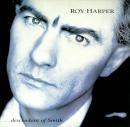
Aggiungo ancora che, proprio per la sua feroce critica al sistema, Roy Harper fu in quegli anni molto ostracizzato dai media, tanto che decise, provocatoriamente, di promuovere questo disco mandando a radio e testate giornalistiche delle demo firmate con identità fittizie, tutte anagrammi del suo nome ('Per Yarroh', compositore norvegese, 'Rory Phare', un designer alla moda, ed 'Harry Rope', un membro degli Hell's Angels). "... descendants of Smith" ebbe attenzione immediata, ma solo fino a quando i (re)censori scoprirono la beffa ordita dall'autore...
Bernart Bartleby 22/2/2016 - 12:02
October 12th
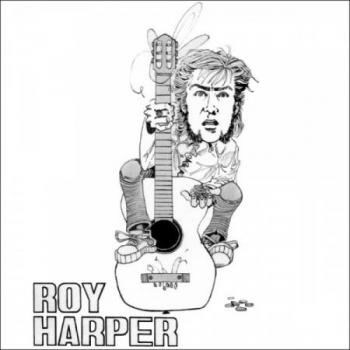
[1966]
Parole e musica di Roy Harper
Nel suo disco d’esordio, “Sophisticated Beggar”
“October 12th” is a poignant protest song dealing with religion, war, environment, and self. This is Harper’s “Masters Of War” or “Working Class Hero”, but unlike those masterpieces that blame the government, Harper blames himself: “I think you're all right and it's me that's all wrong.”
(da Almost Credible Reviews)
Parole e musica di Roy Harper
Nel suo disco d’esordio, “Sophisticated Beggar”
“October 12th” is a poignant protest song dealing with religion, war, environment, and self. This is Harper’s “Masters Of War” or “Working Class Hero”, but unlike those masterpieces that blame the government, Harper blames himself: “I think you're all right and it's me that's all wrong.”
(da Almost Credible Reviews)
Why throw flowers on my grave when I'm dead?
(continua)
(continua)
inviata da Bernart Bartleby 22/2/2016 - 09:41
Brutta gente

Il testo di questa bella canzone è chiaramente ispirato a una famosa poesia di Antonio Machado musicata da Joan Manuel Serrat:
He andado muchos caminos,
he abierto muchas veredas;
he navegado en cien mares,
y atracado en cien riberas.
En todas partes he visto
caravanas de tristeza,
soberbios y melancólicos
borrachos de sombra negra,
y pedantones al paño
que miran, callan, y piensan
que saben, porque no beben
el vino de las tabernas.
Mala gente que camina
y va apestando la tierra…
Y en todas partes he visto
gentes que danzan o juegan,
cuando pueden, y laboran
sus cuatro palmos de tierra.
Nunca, si llegan a un sitio,
preguntan a dónde llegan.
Cuando caminan, cabalgan
a lomos de mula vieja,
y no conocen la prisa
ni aun en los días de fiesta.
Donde hay vino, beben vino;
donde no hay vino, agua fresca.
Son buenas gentes que viven,
laboran, pasan y sueñan,
y en un... (continua)
He andado muchos caminos,
he abierto muchas veredas;
he navegado en cien mares,
y atracado en cien riberas.
En todas partes he visto
caravanas de tristeza,
soberbios y melancólicos
borrachos de sombra negra,
y pedantones al paño
que miran, callan, y piensan
que saben, porque no beben
el vino de las tabernas.
Mala gente que camina
y va apestando la tierra…
Y en todas partes he visto
gentes que danzan o juegan,
cuando pueden, y laboran
sus cuatro palmos de tierra.
Nunca, si llegan a un sitio,
preguntan a dónde llegan.
Cuando caminan, cabalgan
a lomos de mula vieja,
y no conocen la prisa
ni aun en los días de fiesta.
Donde hay vino, beben vino;
donde no hay vino, agua fresca.
Son buenas gentes que viven,
laboran, pasan y sueñan,
y en un... (continua)
Lorenzo 21/2/2016 - 22:26
La planta 14

Ho sempre amato molto questa canzone,vogliate gradire la mia traduzione,il più fedele possibile,con qualche piccolissima licenza,necessaria a rendere anche in italiano l'espressività del testo,
Alla pianta 14 del pozzo della miniera
(continua)
(continua)
inviata da IVANA 21/2/2016 - 20:41
Il ritorno di Giuseppe

Dal blog Fabrizio De André in English
In "Il ritorno di Giuseppe," De André gives more weight to Joseph's journey home than is found in the apocrypha, and he softens the drama found therein upon Joseph's discovery that Maria is pregnant. - Dennis Criteser
THE RETURN OF JOSEPH
(continua)
(continua)
inviata da Riccardo Venturi 21/2/2016 - 20:05
The Free Mexican Airforce
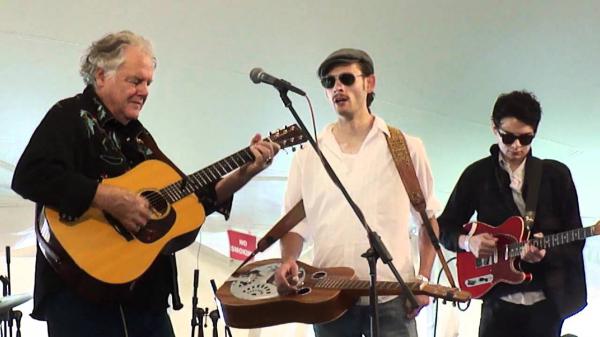
Canzone libertaria. La libera aviazione messicana vola alto usando erbe e altri frutti della terra messicana e lotta contro i poteri dell'oscurità.
Difficilmente Peter Rowan canta tutte le strofe e tende ad alternare alcune di quelle centrali
La "City of Angels" della seconda strofa viene in genere sostituita con il nome del posto dove si trova a cantare, e il cowboy con una cowgirl.
Difficilmente Peter Rowan canta tutte le strofe e tende ad alternare alcune di quelle centrali
La "City of Angels" della seconda strofa viene in genere sostituita con il nome del posto dove si trova a cantare, e il cowboy con una cowgirl.
In the Morenos Mountains campesinos are planting their fields
(continua)
(continua)
inviata da Piersante Sestini 21/2/2016 - 12:52
Bottiglie e battaglie
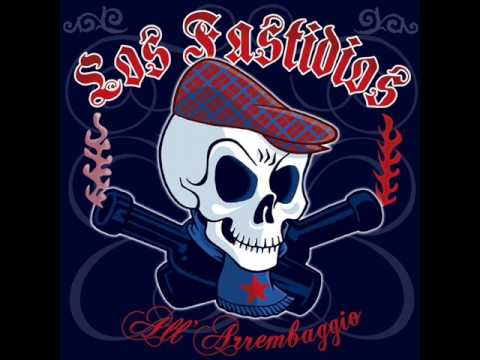
Ogni volta che soffia quel vento mi tornano in mente le vecchie canzoni
(continua)
(continua)
inviata da Luca 'The River' 20/2/2016 - 17:18
Joe Hill
La versione italiana di Alessio Lega e i Malfattori

Italian Version by Alessio Lega and i Malfattori
Italiensk version av Alessio Lega och i Malfattori
Dal CD allegato al volume: Never Forget Joe Hill / Glöm aldrig Joe Hill
di Rino de Michele e altri autori
Traduzioni di Paola Brolati, Sante Carbone, Marco De Michele, Riccardo Venturi, Jan Hammarlund
aParte Editore, Venezia Mestre, 2015
Alessio Lega (voce e chitarra acustica)
Guido Baldoni (organo, fisarmonica e glockenspiel)
con I Malfattori: Luca Guidi (percussioni), Nicola Zamagna (basso), Roberto Zamagna (chitarra elettrica).
Registrato e mixato presso Little Boxes studio a Sant'Arcangelo di Romagna
Joe Hill è un brano di Phil Ochs del 1968 costruito su una melodia tradizionale. La versione italiana è stata appositamente adattata da me e registrata nel 2014 col gruppo dei «Malfattori» di Sant'Arcangelo di Romagna per questa pubblicazione.
Joe Hill chi ha comprato questa pubblicazione... (continua)
Italiensk version av Alessio Lega och i Malfattori
Dal CD allegato al volume: Never Forget Joe Hill / Glöm aldrig Joe Hill
di Rino de Michele e altri autori
Traduzioni di Paola Brolati, Sante Carbone, Marco De Michele, Riccardo Venturi, Jan Hammarlund
aParte Editore, Venezia Mestre, 2015
Alessio Lega (voce e chitarra acustica)
Guido Baldoni (organo, fisarmonica e glockenspiel)
con I Malfattori: Luca Guidi (percussioni), Nicola Zamagna (basso), Roberto Zamagna (chitarra elettrica).
Registrato e mixato presso Little Boxes studio a Sant'Arcangelo di Romagna
Joe Hill è un brano di Phil Ochs del 1968 costruito su una melodia tradizionale. La versione italiana è stata appositamente adattata da me e registrata nel 2014 col gruppo dei «Malfattori» di Sant'Arcangelo di Romagna per questa pubblicazione.
Joe Hill chi ha comprato questa pubblicazione... (continua)
JOE HILL
(continua)
(continua)
inviata da CCG/AWS Staff 20/2/2016 - 16:52
Fiume Sand Creek

INGLESE / ENGLISH [3] - Dennis Criteser
La versione inglese di Dennis Criteser [2014]
Dal blog Fabrizio De André in English
"Fiume Sand Creek" is based on the Civil War massacre of a peaceful village of Cheyenne and Arapaho native Americans by a bloodthirsty U.S. Army Colonel despite the fact that the assailants raised both the American flag and white flags of truce. Two company commanders refused to participate, one of whom, Capt. Silas Soule, testified to the Army about the carnage. In a letter to his former commanding officer he wrote: "I refused to fire, and swore that none but a coward would, for by this time hundreds of women and children were coming towards us, and getting on their knees for mercy. I tell you Ned it was hard to see little children on their knees have their brains beat out by men professing to be civilized."
The album Fabrizio De André is better known as L'indiano... (continua)
La versione inglese di Dennis Criteser [2014]
Dal blog Fabrizio De André in English
"Fiume Sand Creek" is based on the Civil War massacre of a peaceful village of Cheyenne and Arapaho native Americans by a bloodthirsty U.S. Army Colonel despite the fact that the assailants raised both the American flag and white flags of truce. Two company commanders refused to participate, one of whom, Capt. Silas Soule, testified to the Army about the carnage. In a letter to his former commanding officer he wrote: "I refused to fire, and swore that none but a coward would, for by this time hundreds of women and children were coming towards us, and getting on their knees for mercy. I tell you Ned it was hard to see little children on their knees have their brains beat out by men professing to be civilized."
The album Fabrizio De André is better known as L'indiano... (continua)
SAND CREEK
(continua)
(continua)
inviata da Riccardo Venturi 20/2/2016 - 07:58
Cayenne
anonimo
Cayenne
Chanson française – Cayenne – anonyme – vers 1900.
Interprétation : Parabellum
Cette chanson anarchiste des environs de 1900 souvent chantée au bagne de Cayenne, souvent attribuée à Bruant. Elle fut reprise avec succès par le groupe de rock Parabellum en 1986, mais le dernier couplet a volontairement été omis par le parolier de l'époque. Puis par Les Amis d'ta femme, en 2000. Ces derniers donneront une alternative au refrain à la fin de la chanson. Opium du peuple a fait une reprise de la version de Parabellum en 2014 ; version intégrée sur l'album La revanche des clones en 2015.
Elle est parfois également interprétée par Sanseverino lors de ses concerts, de même pour le groupe "Le grôs tour".
Le dialogue maïeutique avec l'âne
Voici encore, Lucien l'âne mon ami, une chanson à propos de Cayenne, ce terrible bagne que la France entretînt en Guyane jusqu'en 1946 ; du moins,... (continua)
Chanson française – Cayenne – anonyme – vers 1900.
Interprétation : Parabellum
Cette chanson anarchiste des environs de 1900 souvent chantée au bagne de Cayenne, souvent attribuée à Bruant. Elle fut reprise avec succès par le groupe de rock Parabellum en 1986, mais le dernier couplet a volontairement été omis par le parolier de l'époque. Puis par Les Amis d'ta femme, en 2000. Ces derniers donneront une alternative au refrain à la fin de la chanson. Opium du peuple a fait une reprise de la version de Parabellum en 2014 ; version intégrée sur l'album La revanche des clones en 2015.
Elle est parfois également interprétée par Sanseverino lors de ses concerts, de même pour le groupe "Le grôs tour".
Le dialogue maïeutique avec l'âne
Voici encore, Lucien l'âne mon ami, une chanson à propos de Cayenne, ce terrible bagne que la France entretînt en Guyane jusqu'en 1946 ; du moins,... (continua)
Je me souviens encore de ma première femme ;
(continua)
(continua)
inviata da Marco Valdo M.I. 19/2/2016 - 22:37
Il giorno prima

(1984)
Album: "Aloha"
Album: "Aloha"
Può accadere senza che la sveglia suoni, a metà di un sogno o un tiro di pallone
(continua)
(continua)
inviata da Lucia Pergher 19/2/2016 - 20:28
Percorsi:
Contro il Nucleare
Dall'altra parte

Album: "Il colore dei pensieri" (1987)
La descrizione malinconica di come si vive nei paesi del Patto di Varsavia porta l'ascoltatore a commuoversi e a riflettere sulle note di Dall'altra parte, brano conclusivo dell'album, che si apre con una introduzione al pianoforte molto malinconica, che lo stesso Facchinetti ammette di aver mutuato da una composizione sentita quasi un decennio prima durante un soggiorno in Romania in occasione della loro tournée nei paesi dell'Est Europa.
La descrizione malinconica di come si vive nei paesi del Patto di Varsavia porta l'ascoltatore a commuoversi e a riflettere sulle note di Dall'altra parte, brano conclusivo dell'album, che si apre con una introduzione al pianoforte molto malinconica, che lo stesso Facchinetti ammette di aver mutuato da una composizione sentita quasi un decennio prima durante un soggiorno in Romania in occasione della loro tournée nei paesi dell'Est Europa.
Dall'altra parte fanno estate i girasoli
(continua)
(continua)
inviata da Lucia Pergher 19/2/2016 - 20:25
’Â çímma

Dennis Criteser [2014]
In "A çimma," a cook explains how a classic Geno(v)ese dish is made. A piece of meat usually taken from the stomach or breast of the young calf is folded and sewn on three sides to make a pocket that is then filled with many ingredients: innards, peas, eggs, cheese, spices, etc. The final side is sewn shut and the meat is boiled carefully in a broth for several hours, punctured with a needle from time to time to prevent the rupturing of the pocket as the ingredients expand. Traditionally, one must take care to prevent trouble from witches and devils who might be attracted by the intoxicating smells. And once done, the tradition is for the servants to remove the glorious cima, leaving the cook out of the picture with only the steam from the now empty pot. Also traditionally, a bachelor makes the first cut. The cook, with a touch of bitterness, tells everyone to eat because you never know who will be out to eat you. - Dennis Criteser
BOILED STUFFED VEAL
(continua)
(continua)
inviata da Riccardo Venturi 19/2/2016 - 08:32
La ballata dell'eroe

Dal blog Fabrizio De André in English
"La ballata dell'eroe" was the B-side of the 45 released by Karim in 1961 that De Andrè considers his first published work (the A-side was "La ballata del Michè"). With the Cold War raging between the US and the USSR, and in the context of the unfolding Berlin Crisis, this song was a simple yet powerful anti-war ballad. The song was re-recorded by Luigi Tenco in 1962 and appeared in the movie "La Cuccagna." The song was republished in 1964 as the B-side to "La guerra di Piero" and also reinterpreted and included on Volume III. Though not officially credited, according to the sheet music of the song the music was written by Elvio Monti, who worked for Karim as arranger and orchestra conductor and who collaborated on many of De Andrè's songs released by that label. - Dennis Criteser
BALLAD OF THE HERO
(continua)
(continua)
inviata da Riccardo Venturi 19/2/2016 - 06:44
Canzoniere del Lazio: Bevi, bevi compagno (Se nasce l'anarchia)

BOIS BOIS CAMARADE (L'ANARCHIE NAÎT)
(continua)
(continua)
inviata da Keskonsmär Parici 18/2/2016 - 22:07
Les Bambous
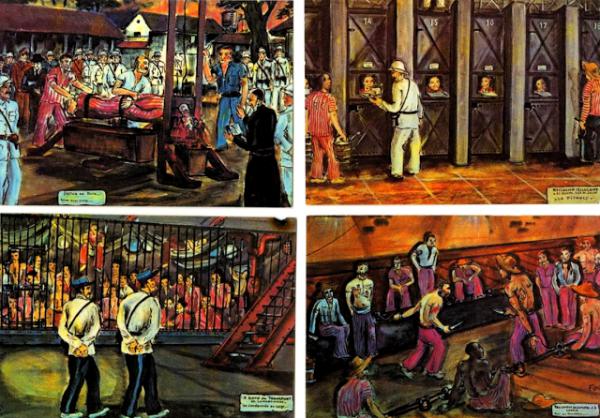
Les Bambous
Chanson française – Les Bambous – Maurice Dulac – 1970
Texte : Boris Bergman (interprétation 1974 – Album : Le Tzigane et la fourmi)
Musique : Maurice Dulac
Lucien l’âne mon ami, toi qui es foncièrement herbivore, tu auras certainement souvenance de la chanson de Karel Kryl que j’avais mise en langue française l’autre jour et qui s’intitule HERBE [(Tráva).
Bien évidemment que je m’en souviens. C’était il y a deux ou trois jours. Je ne suis quand même pas gâteux malgré mon âge millénaire. Mais comme tu le sais, vivre en écriture, ça conserve. Dans cette chanson, il était question de la guerre du Vietnam et de bambous.
Précisément. Et à propos de bambous encore, au moment où je transcrivais cette version française d’une chanson tchèque, s’est mis à me trottiner dans la tête un air entendu autrefois. C’était la ritournelle d’une chanson où il était question de bambous et... (continua)
Chanson française – Les Bambous – Maurice Dulac – 1970
Texte : Boris Bergman (interprétation 1974 – Album : Le Tzigane et la fourmi)
Musique : Maurice Dulac
Lucien l’âne mon ami, toi qui es foncièrement herbivore, tu auras certainement souvenance de la chanson de Karel Kryl que j’avais mise en langue française l’autre jour et qui s’intitule HERBE [(Tráva).
Bien évidemment que je m’en souviens. C’était il y a deux ou trois jours. Je ne suis quand même pas gâteux malgré mon âge millénaire. Mais comme tu le sais, vivre en écriture, ça conserve. Dans cette chanson, il était question de la guerre du Vietnam et de bambous.
Précisément. Et à propos de bambous encore, au moment où je transcrivais cette version française d’une chanson tchèque, s’est mis à me trottiner dans la tête un air entendu autrefois. C’était la ritournelle d’une chanson où il était question de bambous et... (continua)
Tu dors sous les bambous, les bambous, les bambous,
(continua)
(continua)
inviata da Marco Valdo M.I. 18/2/2016 - 21:46
Percorsi:
Dalle galere del mondo
The Ghost Of Tom Joad

Il dialogo tra Tom e la madre citato nel finale della canzone:
Ma said, “How’m I gonna know ’bout you? They might kill ya an’ I wouldn’ know. They might hurt ya. How’m I gonna know?”
Tom laughed uneasily, “Well, maybe like Casy says, a fella ain’t got a soul of his own, but on’y a piece of a big one — an’ then —”
“Then what, Tom?”
“Then it don’ matter. Then I’ll be all aroun’ in the dark. I’ll be ever’where — wherever you look. Wherever they’s a fight so hungry people can eat, I’ll be there. Wherever they’s a cop beatin’ up a guy, I’ll be there. If Casy knowed, why, I’ll be in the way guys yell when they’re mad an’ — I’ll be in the way kids laugh when they’re hungry an’ they know supper’s ready. An’ when our folks eat the stuff they raise an’ live in the houses they build — why, I’ll be there. See? God, I’m talkin’ like Casy. Comes of thinkin’ about him so much. Seems like I can see... (continua)
Ma said, “How’m I gonna know ’bout you? They might kill ya an’ I wouldn’ know. They might hurt ya. How’m I gonna know?”
Tom laughed uneasily, “Well, maybe like Casy says, a fella ain’t got a soul of his own, but on’y a piece of a big one — an’ then —”
“Then what, Tom?”
“Then it don’ matter. Then I’ll be all aroun’ in the dark. I’ll be ever’where — wherever you look. Wherever they’s a fight so hungry people can eat, I’ll be there. Wherever they’s a cop beatin’ up a guy, I’ll be there. If Casy knowed, why, I’ll be in the way guys yell when they’re mad an’ — I’ll be in the way kids laugh when they’re hungry an’ they know supper’s ready. An’ when our folks eat the stuff they raise an’ live in the houses they build — why, I’ll be there. See? God, I’m talkin’ like Casy. Comes of thinkin’ about him so much. Seems like I can see... (continua)
18/2/2016 - 19:57
The Unknown Soldier

[1980]
Parole e musica di Roy Harper
La traccia che dà il titolo (e la copertina) all’album
Una canzone nata dopo una visita a Verdun…
Negli ultimi versi, un’attualizzazione: il soldato morto sui campi della Grande Guerra veglia sul sonno e sui sogni degli innocenti, dei bambini, e insieme a loro andrà a fare a pezzi il bastardo che tiene il dito sul pulsante che può scatenare la guerra finale, quella nucleare…
[…] Perhaps the most remarkable moment in the history of the making of this record was the trip I made with Adrian Boot, later to photograph Bob Marley so completely, to the battlefield at Verdun in France to take the pictures for the sleeve. Pete (Jenner) had just read a book called- 'The Price Of Glory' Verdun 1916, by Alistair Horne, and he suggested Verdun as an idea. I seized on the idea immediately and Adrian and I were soon disembarking at Boulogne in an undrivable hired... (continua)
Parole e musica di Roy Harper
La traccia che dà il titolo (e la copertina) all’album
Una canzone nata dopo una visita a Verdun…
Negli ultimi versi, un’attualizzazione: il soldato morto sui campi della Grande Guerra veglia sul sonno e sui sogni degli innocenti, dei bambini, e insieme a loro andrà a fare a pezzi il bastardo che tiene il dito sul pulsante che può scatenare la guerra finale, quella nucleare…
[…] Perhaps the most remarkable moment in the history of the making of this record was the trip I made with Adrian Boot, later to photograph Bob Marley so completely, to the battlefield at Verdun in France to take the pictures for the sleeve. Pete (Jenner) had just read a book called- 'The Price Of Glory' Verdun 1916, by Alistair Horne, and he suggested Verdun as an idea. I seized on the idea immediately and Adrian and I were soon disembarking at Boulogne in an undrivable hired... (continua)
I am an old soldier
(continua)
(continua)
inviata da Bernart Bartleby 18/2/2016 - 15:45
Linea gotica
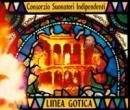
In Ferretti il filo conduttore non è mai stata l'ideologia politica, bensì la religiosità, il misticismo. Di volta in volta Ferretti ha ammantato questo aspetto con dottrine politiche diverse, come un quadro a cui, ogni tanto, viene cambiata la cornice, ma il dipinto resta sempre quello. E quindi noi abbiamo il Ferretti fino ai 20 anni, montanaro, cattolico e tradizionalista, il Ferretti anni 70/80, punk,squatter, proletario, cattolico e comunista e il Ferretti attuale, "tornato a casa" , nuovamente montanaro, cattolico e tradizionalista. Che poi questo l'abbia portato a cambiare idea su alcuni aspetti( da pro-Palestina a pro-Israele, da antiimperialista a sostenitore della guerra al terrorismo,da favorevole a aborto e divorzio a contrario ecc.) è si vero. Ma il filo conduttore, la religiosità, c'è sempre stato. Come ha detto giustamente Giorgio Canali "io queste cose le so da sempre, siete voi che vi fate distrarre dal buco nero dei suoi occhi".
Rothan 18/2/2016 - 13:42
Khorakhané (A forza di essere vento)

Dal blog Fabrizio De André in English
"Khorakhanè" is a song about the Romani people, who originated from India in the 14th century. Khorakhanè means lover of the Koran, and the Romanis of this song are a Serbian/Montenegran Islamic tribe. Due to the nomadic ways of Romani tribes, they are sometimes called "people of the wind." The first verse is the image of the conflict that Romanis feel about settling down to a perhaps easier life versus their impulse to keep moving. The second verse refers to several Romani practices: giving their children the names of people currently in power so as to win them over and gain the ability of passage across borders; hiding their jewels in loaves of bread to avoid having them discovered and taken; and marrying within the tribe to maintain social purity. The third verse presents an image of Romanis who have settled down (as is the case for the great majority... (continua)
"Khorakhanè" is a song about the Romani people, who originated from India in the 14th century. Khorakhanè means lover of the Koran, and the Romanis of this song are a Serbian/Montenegran Islamic tribe. Due to the nomadic ways of Romani tribes, they are sometimes called "people of the wind." The first verse is the image of the conflict that Romanis feel about settling down to a perhaps easier life versus their impulse to keep moving. The second verse refers to several Romani practices: giving their children the names of people currently in power so as to win them over and gain the ability of passage across borders; hiding their jewels in loaves of bread to avoid having them discovered and taken; and marrying within the tribe to maintain social purity. The third verse presents an image of Romanis who have settled down (as is the case for the great majority... (continua)
KHORAKHANÉ (BY WAY OF BEING WIND)
(continua)
(continua)
inviata da Riccardo Venturi 18/2/2016 - 08:48
Le roi a fait battre tambour, ou La marquise empoisonnée
anonimo
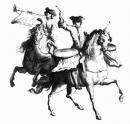
Il re fa rullare i tamburi - La versione inglese di Dennis Criteser
Dal blog Fabrizio De André in English
Dal blog Fabrizio De André in English
THE KING MAKES THE DRUMS ROLL
(continua)
(continua)
inviata da Riccardo Venturi 18/2/2016 - 08:41
Le cul entre deux chaises
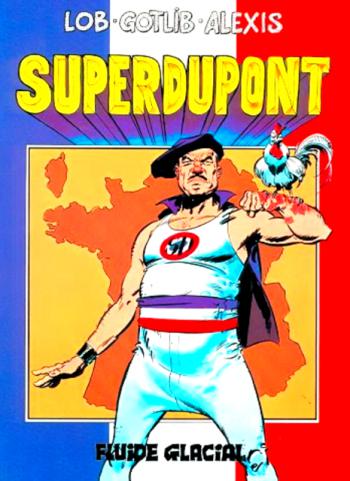
Le cul entre deux chaises
Chanson française – Le cul entre deux chaises – Maurice Dulac – 1975
Texte : Jacqueline Sorano – Maurice Dulac
Il y a des chansons et en corollaire, des chanteurs et même, des chanteuses de ces chansons qu’on découvre bien longtemps après le moment de leur floraison et même qu’ils aient fini de la chanter. Mais, te souviens-tu précisément, de ceci :
« Longtemps, longtemps après que les poètes ont disparu,
Leurs chansons courent encore dans les rues. », que disait, chantonnait Trenet. C’est le cas de cette chanson de Jacqueline Sorano, interprétée par Maurice Dulac en 1975. Elle s’intitule « Le cul entre deux chaises », mais, à voir ton œil égrillard, je te précise tout de suite ce n’est pas le cul de la patronne.
Là Marco Valdo M.I. mon ami, je t’arrête. C’est dommage, car comme tu le devines, j’aime beaucoup le cul de la patronne, c’est toujours pour moi,... (continua)
Chanson française – Le cul entre deux chaises – Maurice Dulac – 1975
Texte : Jacqueline Sorano – Maurice Dulac
Il y a des chansons et en corollaire, des chanteurs et même, des chanteuses de ces chansons qu’on découvre bien longtemps après le moment de leur floraison et même qu’ils aient fini de la chanter. Mais, te souviens-tu précisément, de ceci :
« Longtemps, longtemps après que les poètes ont disparu,
Leurs chansons courent encore dans les rues. », que disait, chantonnait Trenet. C’est le cas de cette chanson de Jacqueline Sorano, interprétée par Maurice Dulac en 1975. Elle s’intitule « Le cul entre deux chaises », mais, à voir ton œil égrillard, je te précise tout de suite ce n’est pas le cul de la patronne.
Là Marco Valdo M.I. mon ami, je t’arrête. C’est dommage, car comme tu le devines, j’aime beaucoup le cul de la patronne, c’est toujours pour moi,... (continua)
Je suis né sous le signe de la balance,
(continua)
(continua)
inviata da Marco Valdo M.I. 17/2/2016 - 23:26
A Good Man Is Hard to Find (Pittsburgh)

(1982)
Registrata durante le sessioni di Born in the U.S.A. e pubblicata in seguito in Tracks (1998)
Bruce Springsteen told Mark Hagen in an interview published in Mojo Magazine in January 1999: "The late '70s and early '80s was the first time when literature and films began to be made about Vietnam. There was a subtext on a few earlier things, there was a movie called 'Who'll Stop The Rain' with Nick Nolte, but all of a sudden it began to become very directly addressed. It began with a strange experience when I was driving across the country and I stopped in Arizona at a chug store and I bought a book called 'Born On The Fourth Of July'. I drove on to Los Angeles, and was at this little motel sitting at the pool and a fella came up, started talking and introduced himself: Ron Kovic. I thought, I must have met this fella, his name sounds real familiar, and he said, 'I wrote a book called... (continua)
Registrata durante le sessioni di Born in the U.S.A. e pubblicata in seguito in Tracks (1998)
Bruce Springsteen told Mark Hagen in an interview published in Mojo Magazine in January 1999: "The late '70s and early '80s was the first time when literature and films began to be made about Vietnam. There was a subtext on a few earlier things, there was a movie called 'Who'll Stop The Rain' with Nick Nolte, but all of a sudden it began to become very directly addressed. It began with a strange experience when I was driving across the country and I stopped in Arizona at a chug store and I bought a book called 'Born On The Fourth Of July'. I drove on to Los Angeles, and was at this little motel sitting at the pool and a fella came up, started talking and introduced himself: Ron Kovic. I thought, I must have met this fella, his name sounds real familiar, and he said, 'I wrote a book called... (continua)
It's cloudy out in Pittsburgh, it's raining in Saigon
(continua)
(continua)
17/2/2016 - 22:24
Percorsi:
Guerra in Vietnam: vista dagli USA
Unità di Produzione

Io credo che tra il Ferretti attuale e quello degli anni'80 ci siano moltissimi punti di discontinuità ( da filopalestinese a filoisraeliano, da antiamericano a sostenitore delle guerre di Bush al terrorismo, da cattolico libertario favorevole ad aborto e divorzio a cattolico tradizionalista che considera gli stessi crimini ecc.)..Ma ci sono anche punti di contatto, come il concetto di Patria, di un mondo con dei confini( GLF non è mai stato un comunista internazionalista), di identità.
E poi forse molti non sanno che GLF fino a vent'anni aveva le stesse idee di ora, si "convertì" al Comunismo dopo il trasferimento a Bologna e l'approdo a Lotta Continua. In Varie interviste ha parlato di un "ritorno a casa", come dire che le sue idee reali sono queste e quella comunista è stata solo una parentesi della sua vita che pure non rinnega. Ciauz :)
E poi forse molti non sanno che GLF fino a vent'anni aveva le stesse idee di ora, si "convertì" al Comunismo dopo il trasferimento a Bologna e l'approdo a Lotta Continua. In Varie interviste ha parlato di un "ritorno a casa", come dire che le sue idee reali sono queste e quella comunista è stata solo una parentesi della sua vita che pure non rinnega. Ciauz :)
Rotolo 17/2/2016 - 16:44
Custer

Chiederei agli Admins di dare un'occhiata al testo di questo brano...
A me sembra quasi che si tratti della dscrizione della cristiana dipartita da questo mondo del gen. Custer il quale, in punto di morte, fa un breve e per nulla esaustivo elenco dei suoi peccatucci (l'alito di birra?!? E i massacri di vecchi, donne e bambini???) per poi invocare il perdono e raccomandare l'anima al Signore...
Se fosse come dico, non credo proprio che questa possa essere considerata una CCG/AWS...
A me sembra quasi che si tratti della dscrizione della cristiana dipartita da questo mondo del gen. Custer il quale, in punto di morte, fa un breve e per nulla esaustivo elenco dei suoi peccatucci (l'alito di birra?!? E i massacri di vecchi, donne e bambini???) per poi invocare il perdono e raccomandare l'anima al Signore...
Se fosse come dico, non credo proprio che questa possa essere considerata una CCG/AWS...
Bernart Bartleby 17/2/2016 - 15:29
×
![]()

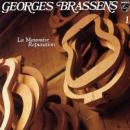
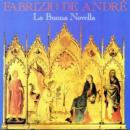


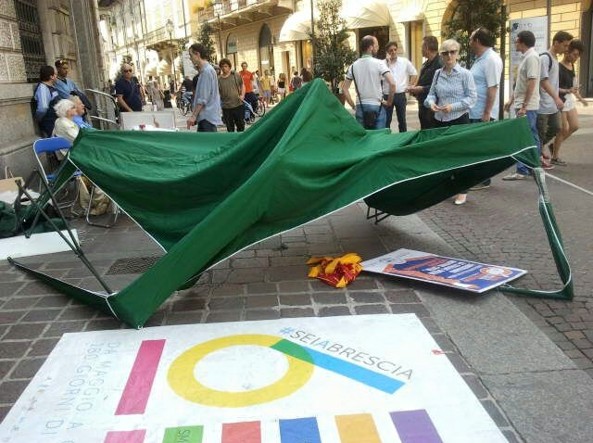


![Fabrizio De André: Creuza de mä [Crêuza de mä]](img/thumb/c46496_130x140.jpeg?1455969287)
